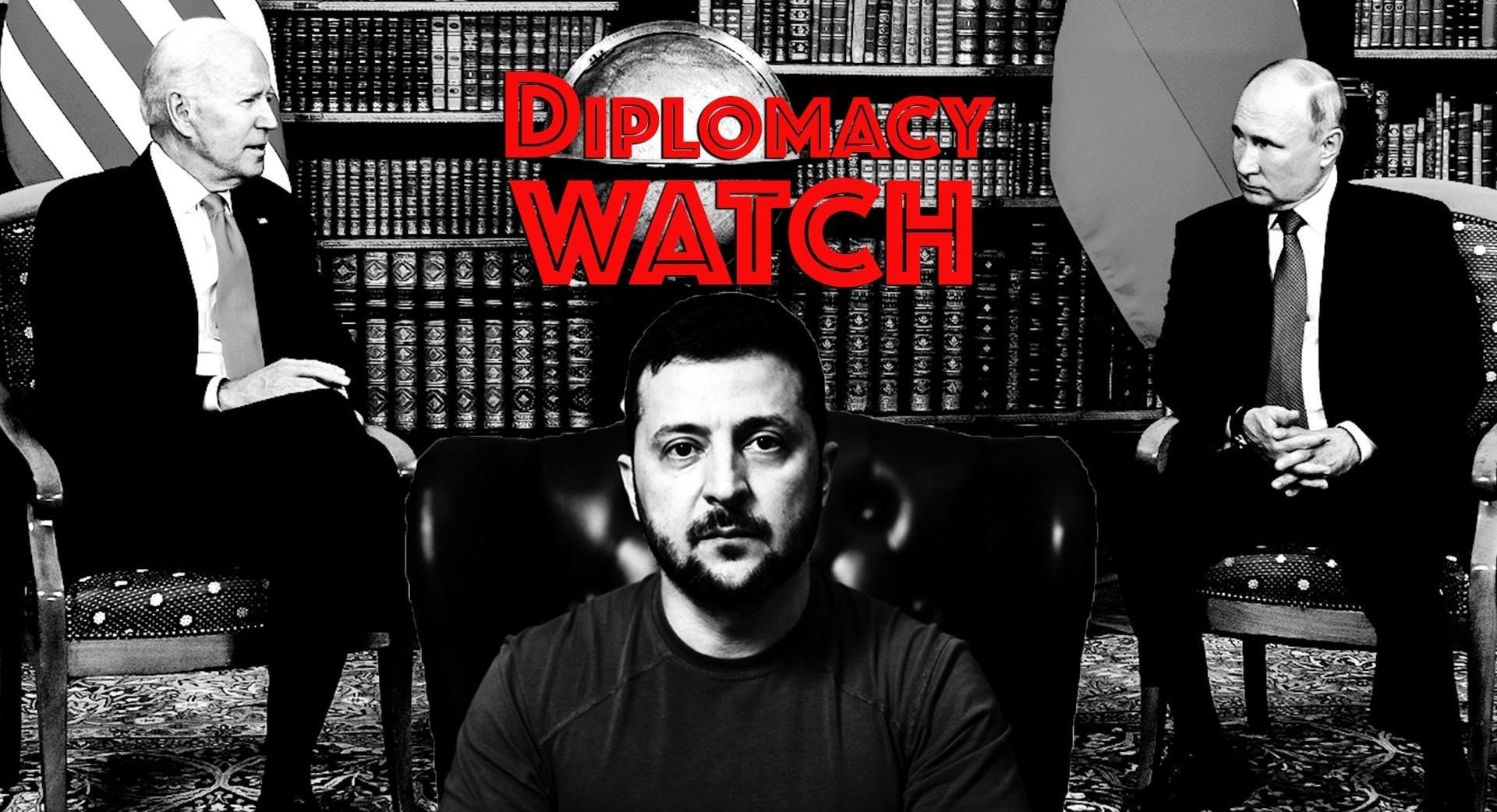Vladimir Putin has been humiliated in Syria and now he has to make up for it in Ukraine.
That’s what pro-war Russian commentators are advising the president to do in response to the sudden collapse of Bashar al-Assad’s regime, according to the New York Times this week. That sentiment has potential to derail any momentum toward negotiating an end to the war that had been gaining at least some semblance of steam over the past weeks and months.
“Mr. Putin could intensify his costly offensive in Ukraine to recover some prestige,” says the Times. And he appears poised to do just that. This week, a Pentagon spokesperson announced that the Russians are on the verge of launching its new lethal intermediate range ballistic missile on Ukraine once again, saying they’re “trying to use every weapon that they have in their arsenal to intimidate Ukraine.”
Some Russian analysts say Putin is unlikely to be influenced by outside events, and dismiss calls for him to escalate in Ukraine as “noise.” And those calling for escalating Russia’s war in Ukraine offer few details on how a depleted Russian army can achieve such maximalist aims. But, as the Times notes, “they are united in their calls for the army to step up its assaults.”
Meanwhile, however, Moscow appears to be keeping the door open to negotiations. The Kremlin said this week that Putin’s goals of preventing Ukraine from joining NATO and solidifying control of the four eastern regions it took from Ukraine will be accomplished militarily or diplomatically, with the country’s spy chief even suggesting those goals are within reach.
Regardless of whether Putin decides to escalate in Ukraine, President-elect Trump still appears determined to end the war quickly once he assumes office next month. “There should be an immediate ceasefire and negotiations should begin,” he said on his social media platform Truth Social. He also said in an interview with NBC that he would be prepared to reduce military aid to Ukraine and withdraw the United States from NATO.
And in a new interview with TIME magazine, Trump criticized the Biden administration for allowing Ukraine to use U.S. long-range missiles to attack targets inside Russia.
“I disagree very vehemently with sending missiles hundreds of miles into Russia,” he said. “Why are we doing that? We're just escalating this war and making it worse. That should not have been allowed to be done. Now they're doing not only missiles, but they're doing other types of weapons. And I think that's a very big mistake, very big mistake.”
But while Trump appears to want a quick end to the war, he apparently doesn’t want the United States to play a primary role in implementing any such resolution. The Wall Street Journal reported this week that the outlines of Trump’s plan are starting to emerge based on his trip to Europe last week: “Europe would have to shoulder most of the burden of supporting Kyiv with troops to oversee a cease-fire and weapons to deter Russia.”
In other Ukraine war news this week:
Russian troops are close to taking the strategic eastern city of Pokrovsk, according to Ukraine’s top general, the New York Times reported. Gen. Oleksandr Syrsky said “unconventional decisions” would have to be made to bolster Ukrainian defenses although he did not specify what such actions would be.
U.S. Treasury Secretary Janet Yellen announced the disbursement of a $20 billion loan to Ukraine this week. Former UK diplomat Ian Proud writes in Responsible Statecraft that “the issue of how this latest $20 billion handout to Ukraine will be paid seems entirely secondary to the point that it won’t be the end of U.S. funding to Ukraine.”
The Pentagon announced a new security assistance package for Ukraine worth nearly $1 billion this week as, according to the Associated Press, “the Biden administration rushes to spend all the congressionally approved money it has left to bolster Kyiv before President-elect Donald Trump takes office next month.”
From State Department Press Briefing on Dec. 9
Asked about U.S. pressure on Ukraine to expand the pool of eligible draftees from 25 years old to 18, spokesman Matthew Miller said, “the decisions about the composition of its military force are – those are decisions that the Ukrainians have to make for themselves. What we have made clear is that if they produce additional forces to join the fight, we and our allies will be ready to equip those forces and train those forces to enter battle.”
















